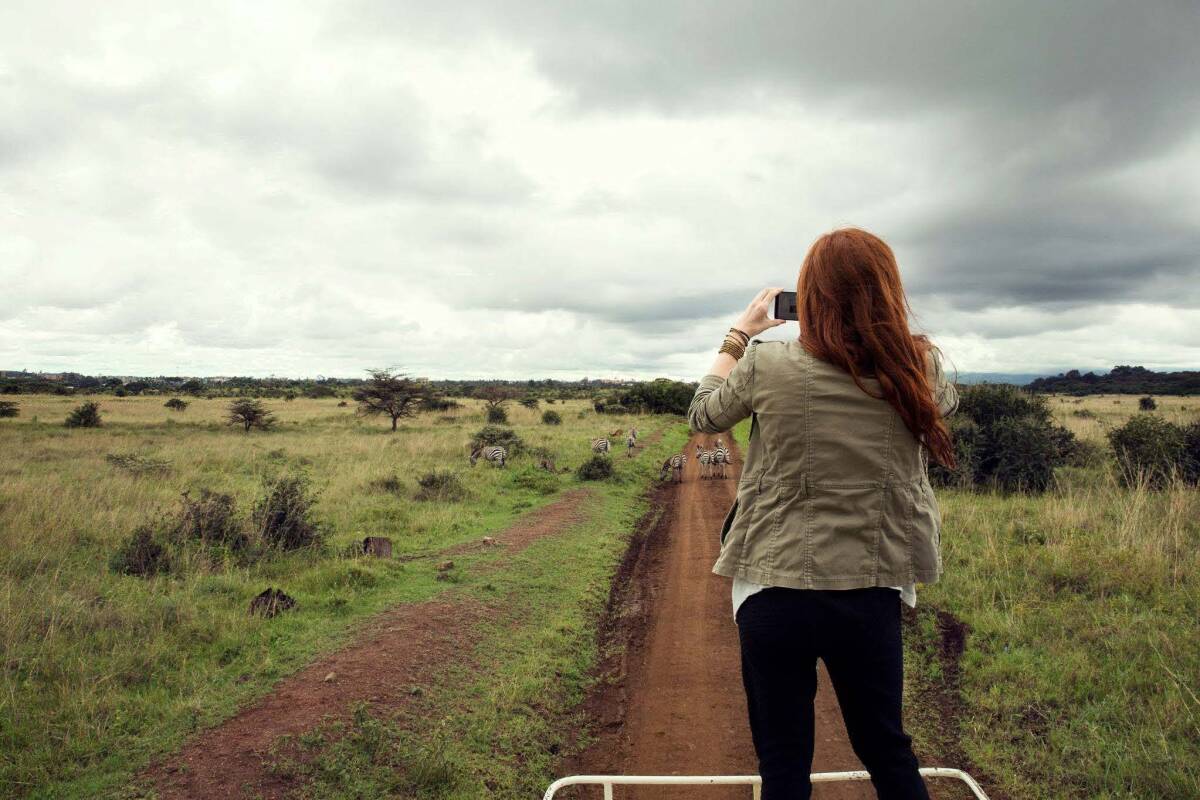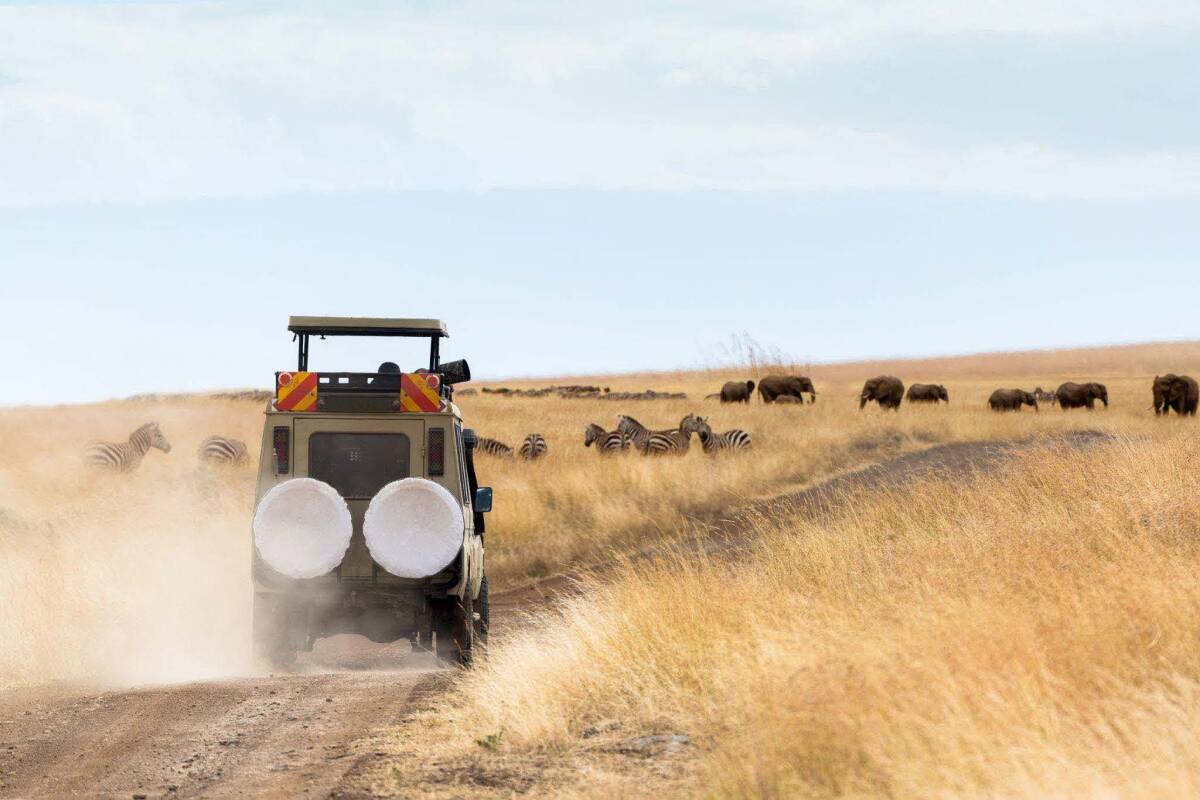
Safari Travel Insurance
Comprehensive Guide to Safari Travel Insurance
From the Chobe National Park in Botswana to the Serengeti National Park in Tanzania, an African safari transports travelers to a land before time, with grassy plains and marshy riverbeds that feed some of the world’s most endangered species. Travelers cross continents to observe black rhinos and African elephants in their natural habitats or watch the massive annual migration of wildebeest and zebra.
Yet, even in landscapes as picturesque as African grasslands and waterways, accidents can lurk in the most unexpected places. Whether it’s heat stroke, dengue fever, or a run-in with an irate elephant, a safari trip exposes travelers to emergencies they simply wouldn’t have to worry about at home. That’s why, before embarking on your next journey, you’ll want to invest in reliable safari travel insurance.
Understanding Safari Travel Insurance
A general travel insurance policy is designed to protect a traveler and their travel companion(s) against unforeseen events and sudden financial losses that could occur while on a trip. Safari travel insurance refers to a comprehensive travel insurance policy that includes coverages designed for the unique risks of exploring remote and wildlife-rich regions. So, what does safari travel insurance cover?
Safari travel insurance includes critical coverage areas for unexpected complications, including but not limited to:
Trip Cancellation
Trip cancellation insurance is a staple in comprehensive travel insurance policies to provide travelers with up to 100% reimbursement for unused, non-refundable, prepaid trip costs if a covered reason causes the traveler to cancel before departure. Safari trip cancellation insurance often includes covered reasons like the sickness or injury of the traveler, travel companion, or family member.
Trip Interruptions or Delays
Another component of comprehensive safari travel insurance is coverage for trip interruptions and travel delays. Trip interruption insurance covers last-minute travel expenses if a traveler or a family member back home falls ill or gets injured during the trip, and the traveler must end their safari experience prematurely. Travel delay insurance provides reimbursement for unexpected out-of-pocket expenses, such as meals and transportation, if a traveler encounters a delay traveling to or from a safari trip.
Medical Emergencies
Unlike some basic travel insurance policies, safari travel insurance also includes travel health insurance fo iIn the event that a traveler encounters a medical emergency while on a safari — such as breaking a bone, being bitten by an insect, or bumping into wildlife — safari travel insurance has coverage for doctor visits, emergency medicine, ambulance rides, and even medical evacuation insurance.
Baggage and Belongings
Not every element of wildlife safari insurance is geared toward unexpected cancellations or interruptions. There’s also baggage insurance coverage, which provides reimbursement for belongings that are damaged, lost, or stolen. Likewise, safari travel insurance includes emergency assistance travel insurance in the event a traveler requires instant support, like replacing a stolen passport.
Benefits of Safari Travel Insurance
What are the benefits of safari travel insurance? Ultimate peace of mind and financial security! Travel insurance for safari trips is an adventurer’s first line of defense against the unexpected, like when an accident walking through the plains ends in a broken bone or allergic reaction. Safari travel insurance covers unforeseen costs, such as medical treatments and emergency evacuations, which can be costly.
Speaking of unforeseen costs, safari travel insurance can reimburse travelers if they must cancel their trip due to a covered reason — like if the family member who was on babysitting duty gets sick and the parents need to cancel their safari plans. Plus, wildlife safari insurance comes equipped with emergency support services, with 24/7 support for re-booking travel arrangements for ultimate confidence.

Choosing the Right Safari Travel Insurance Policy
Now that we’ve outlined the components and benefits of comprehensive insurance coverage, chances are, you’re scouring the internet for the best policy. Before searching, “What should I look for in safari travel insurance?” check out these three tips for choosing the most suitable travel insurance policy for you.
Determine the Coverage Duration
There are two types of policies: single-trip travel insurance policies and multi-trip travel insurance policies. Single-trip policies cover one trip for a maximum trip length of up to 60 days. Multi-trip policies cover an unlimited number of trips per year for a maximum trip length of up to 31 days per trip. If you plan to visit Africa or other countries multiple times in one year, multi-trip is the more affordable safari insurance.
Review the Policy Exclusions
Once you’ve decided if a single-trip or multi-trip travel insurance policy is right for you, you must review the policy exclusions of any potential safari travel insurance. For instance, most travel insurance policies do not cover pre-existing medical conditions that result in a claim without a waiver. Likewise, despite the proximity to wildlife, travel insurance for safari trips does include adventure sports.
Consider the Planned Activities
Speaking of adventure sports, it’s vital to consider your planned activities before purchasing safari travel insurance. The majority of travel insurance policies have exclusions for high-risk sports — such as mountaineering, scuba diving, and skydiving — that require specialized insurance. So, if you plan to hike Mount Kilimanjaro on your safari, you must research adventure travel insurance policies.
Safari Travel Insurance for Different Traveler Types
Beyond your trip duration and policy exclusions, you might be seeking additional tips for purchasing safari travel insurance based on your age or traveling companion(s). Baby Boomers and travelers belonging to Generation X should focus on travel health insurance. More specifically, these travelers should seek emergency assistance travel insurance, including medical evacuation insurance.
Parents traveling with children should seek family safari travel insurance that has maximum flexibility for changes in travel plans. Be sure to look for safari trip cancellation insurance benefits. Young adventurers, including Millennials and Gen Z travelers who desire off-the-beaten-path experiences and adventure travel, must purchase policies that include coverage for high-risk activities.
Essential Tips for a Safe and Enjoyable Safari
Before you embark on a scenic tour of African wildlife and explore the native landscapes, you’ll want to gear up for your trip. While you can’t predict the unexpected, like an accident or emergency while away, here’s a quick look at the steps you can take now to ensure a safer and more enjoyable safari experience.
- Pre-Trip Preparations: Before you leave on your safari adventure, confirm that your vaccinations are up to date and make sure your passport is valid for at least three months from your departure date.
- During the Safari: Take necessary precautions to protect yourself and your belongings while on the safari, including adhering to rules regarding wildlife interactions and storing valuables somewhere safe.
- Post-Trip Considerations: If you have to file a claim once returning home, such as a trip interruption claim, maintain receipts of any last-minute travel expenses, including airfare and accommodations.
Rely on Aegis for Safari Travel Insurance
A safari experience transports travelers to remote and wildlife-rich regions, unlike anything they’ve ever experienced. However, these bucket-list trips can also incur unique risks that range across injuries and illnesses. Before embarking on your journey, know that insurance for an African safari is the key to financial protection and peace of mind.
Explore Aegis options for safari travel insurance today!



